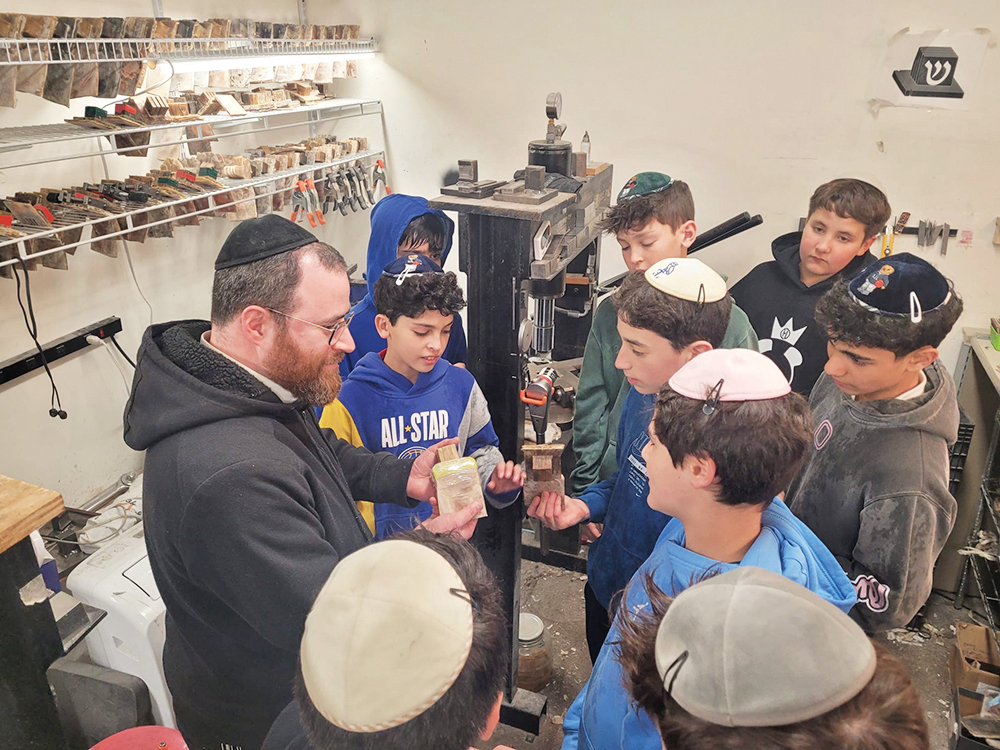
May these words of Torah serve as a merit le’iluy nishmat Menachem Mendel ben Harav Yoel David Balk, a”h.
This week we learned Menachot 85. These are some highlights.
Why did we need a Chanukah miracle of eight days?
Some Rishonim utilize our Gemara to explain the Chanukah story. Gemara Shabbos (21b) teaches that when the Chashmonaim entered the Mikdash after defeating the Greeks, they found that all the oil of the Mikdash had been defiled except for a single jar. It only had enough oil for a day, and a miracle occurred and the oil burned for eight days. Why did they need the miracle of eight days of oil burning? Couldn’t they get new oil sooner? Ran (Shabbos 21b) answers with our Gemara. Our Gemara states that the best place for oil was Tekoa. Tekoa, according to the Ran, was in the portion of Asher and far from Yerushalayim. It would take them four days to walk to Tekoa. This is why they needed the miracle for eight days, so that the Menorah would still be burning when they returned from Tekoa with new, pure, high-quality olive oil. Other Rishonim disagree.
Some Rishonim feel that Tekoa was in the portion of Benjamin or in the portion of Judah and it was close to Yerushalayim (see Divrei Hayamim II Chapter 11, Abarbanel to Shmuel II Chapter 14, Rashi Pesachim 53b s.v. Tekoa, Kovetz Beis Aharon Veyisrael 104 page 85). If Tekoa was near Yerushalayim, why was there a need for the oil to miraculously burn for eight days? These opinions will agree with the explanation of the Beit Yosef (Siman 670). Beit Yosef explains that those who wished to manufacture the oil were all impure with death impurity, temei’ei meisim, and they needed a week to become pure from tumat meit. Only once they were pure they were able to make new oil and bring it in a single day.
We light flames for eight nights of Chanukah to remember the miracle of the eight days in which the Menorah miraculously stayed lit in the Mikdash. According to some, we are to try to have flames that resemble the flames of the Mikdash as much as possible. It is therefore best to have pure olive oil for the Menorah. In recent years they have started to sell congealed oil for Chanukah. The oil is solid. Once lit, it melts and becomes a liquid. Shu”t Shevet Halevi (Cheilek Tet Siman 143) discusses the question about whether such a product is ideal for Chanukah flames. Our pages of Menachot discuss the characteristics of the oil for the Mikdash but they do not explicitly address the status of solid oil.
Shevet Halevi argues that such oil would not be kosher for the Beit Hamikdash. Rambam (Hilchot Tumat Ochlin 1:19) rules that congealed oil is no longer considered a liquid but it is also not considered a solid food item. Congealed oil therefore cannot be sanctified. The Temple had sacred utensils for liquids and other sacred utensils for solids. A solid would not become holy were it to be placed or measured in a utensil for liquids, and a liquid would not become holy if it was placed or measured in a utensil for solids. The oil of the Menorah was to be sanctified in the vessels intended for liquids. Solid oil is no longer a liquid. Were it to be placed in the cups of the Menorah, the cups of the Menorah would not sanctify it and therefore it was not suitable for the Menorah in the Mikdash. Ultimately, Shevet Halevi concludes that one may use congealed oil for Chanukah candles. We are allowed to use wax candles; therefore, we certainly can use congealed oil. There is no perfect parallel between the Menorah in the Mikdash and the Chanukah candles. Chanukah lights should resemble the Menorah in the Mikdash but they do not need to be a perfect parallel match to what was used in the Mikdash. (Me’orot Daf Hayomi)
By Rabbi Zev Reichman
Rabbi Zev Reichman teaches Daf Yomi in his shul, East Hill Synagogue.













